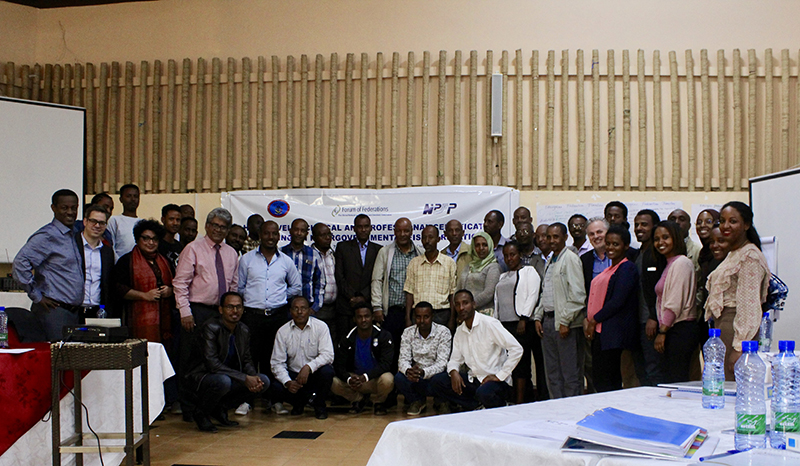
The Forum conducts a High Level Technical and Professional Certificate Training Program on Intergovernmental Fiscal Relations
The Forum of Federations (FoF) in collaboration with House of Federations (HoF), the National Institute for Public Finance and Policy (NIPFP) and Meles Zenawi Leadership Academy (MZLA) conducted a rigorous two- week long High Level Technical and Professional Certificate Training Program on Intergovernmental Fiscal Relations from January 27th– February 7th. The training program aimed to increase the capacity of HOF, regional Counterparts and other key stakeholders to design, implement and monitor a transfer system that promotes peace, sustainability and gender equality.
This training program is an integral part of the five-year project “Strengthening Federal Governance and Pluralism in Ethiopia”, financed by Global Affairs Canada. Overall, thirty- three participants attended the training, out of which only four were women. The training was delivered and facilitated by five international and two national trainers. In terms of methodology, adult learning principles and methods provided the participants with an opportunity for exchange of ideas and learnings from one another. The training was comprised of lectures, interactive activities, question and answer sessions, group work, simulations exercises and workplace assignment.
Core to the training program is the Workplace Assignment, which serves as a prerequisite for qualifying for the certificate. Trainees are, therefore, required not only to complete the course but also to accomplish and submit the workplace assignment after the training. Accordingly, all the trainees prepared and presented their proposal during the course of the training. For this purpose, each trainee is assigned with an advisor that can help and supervise them in their workplace assignment.
When combined, all of these activities were expected to strengthen the theoretical and technical knowledge and skills of the participants. It was also meant to enable the participants to conduct their job with more diligence and better quality.
According to most participants, the training program was deemed extremely successful as it afforded them with a comprehensive learning experience. The simulation exercises together with facilitated group discussion and individual and group assignments which are mostly related with practical real world problems availed them the chance to gain practical skills that can be applied when performing their job. One participant was quoted saying that the “the workshop was very successful, it has enhanced my skills and knowledge, I will be able to perform my job with better understanding.” This made it obvious that the workshop was an extreme success, as most participants claimed to have a better grasp of the knowledge, theory and practice surrounding intergovernmental fiscal relations and its attributes.



